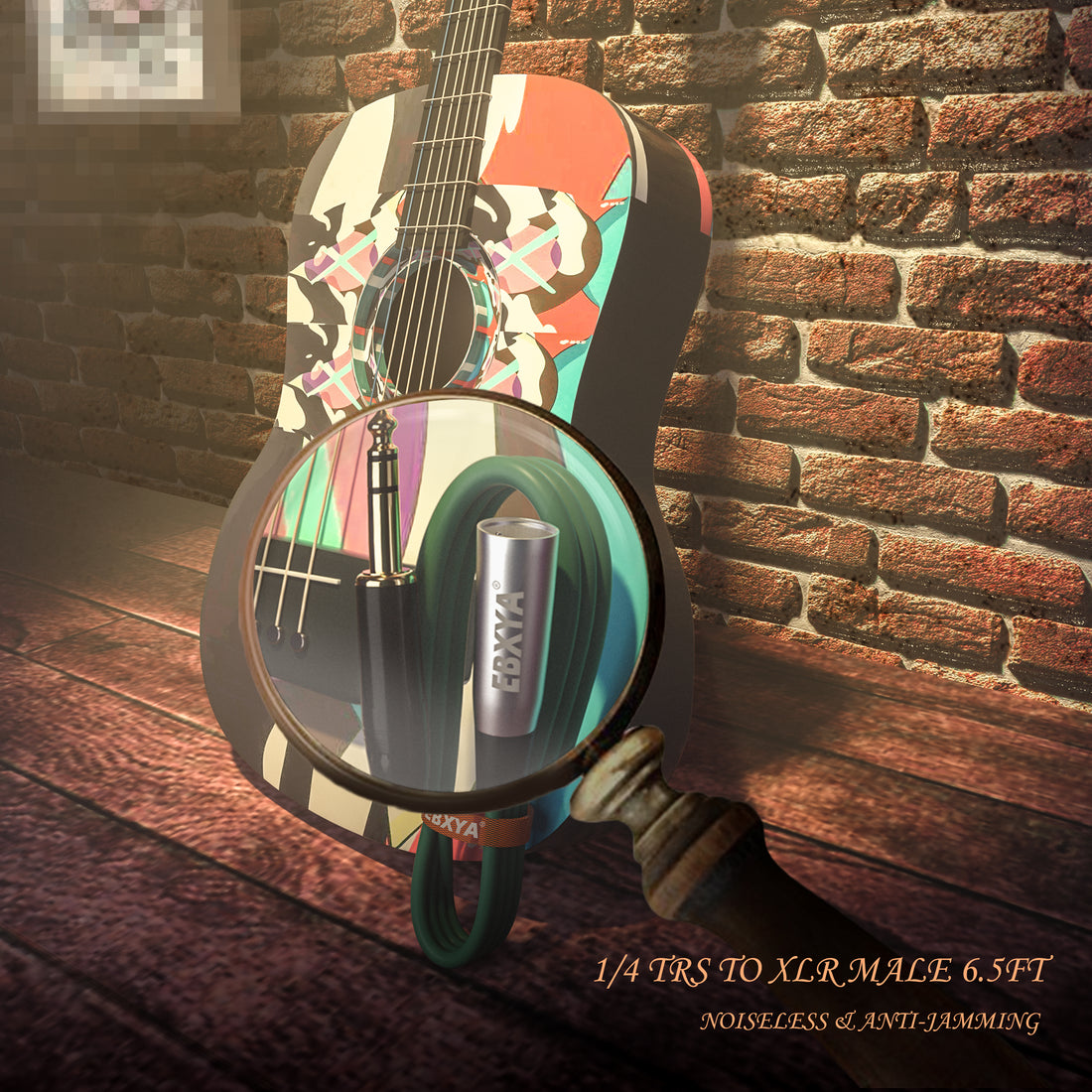
10 Tips for Properly Maintaining Your Guitar Cables
Share
As a guitarist, your cables are one of the most important components of your instrument. Properly maintaining your cables can help ensure that they sound great and last longer. Here are 10 tips for properly maintaining your guitar cables:
Wash your hands before playing: The oils and dirt on your hands can damage your cables over time. Washing your hands before playing can help keep your cables clean.
Clean your cables after playing: Use a soft cloth to wipe down your cables after playing to remove dirt and sweat. This will help prevent corrosion and extend the life of your cables.
Use a cable cleaner: A cable cleaner can help remove dirt and sweat from your cables. Apply the cleaner to a cloth and wipe down your cables.
Use a fretboard conditioner: A fretboard conditioner can help keep your fretboard clean and moisturized. Apply the conditioner to a cloth and rub it into the fretboard.
Change your cables regularly: Cables can lose their brightness and tone over time. Changing your cables regularly can help keep your guitar sounding great.
Stretch your cables: After installing new cables, stretch them by pulling gently on them. This will help them settle into place and stay in tune.
Use the right gauge: Use the right gauge of cables for your playing style and guitar. Heavier gauge cables may sound better for heavy strumming, while lighStore your guitar properly: Store your guitar in a cool, dry place to prevent damage to your cables from humidity and temperature changes.
Use a cable winder: A cable winder can make changing your cables easier and faster.
Use a high-quality brand of cables: Using a high-quality brand of cables can make a big difference in the sound and longevity of your cables.
By following these 10 tips, you can help ensure that your guitar cables sound great and last as long as possible. Properly maintaining your cables is an important part of being a guitarist, and can help you achieve the best possible sound from your instrument.
Wash your hands before playing: The oils and dirt on your hands can damage your cables over time. Washing your hands before playing can help keep your cables clean.
Clean your cables after playing: Use a soft cloth to wipe down your cables after playing to remove dirt and sweat. This will help prevent corrosion and extend the life of your cables.
Use a cable cleaner: A cable cleaner can help remove dirt and sweat from your cables. Apply the cleaner to a cloth and wipe down your cables.
Use a fretboard conditioner: A fretboard conditioner can help keep your fretboard clean and moisturized. Apply the conditioner to a cloth and rub it into the fretboard.
Change your cables regularly: Cables can lose their brightness and tone over time. Changing your cables regularly can help keep your guitar sounding great.
Stretch your cables: After installing new cables, stretch them by pulling gently on them. This will help them settle into place and stay in tune.
Use the right gauge: Use the right gauge of cables for your playing style and guitar. Heavier gauge cables may sound better for heavy strumming, while lighStore your guitar properly: Store your guitar in a cool, dry place to prevent damage to your cables from humidity and temperature changes.
Use a cable winder: A cable winder can make changing your cables easier and faster.
Use a high-quality brand of cables: Using a high-quality brand of cables can make a big difference in the sound and longevity of your cables.
By following these 10 tips, you can help ensure that your guitar cables sound great and last as long as possible. Properly maintaining your cables is an important part of being a guitarist, and can help you achieve the best possible sound from your instrument.
